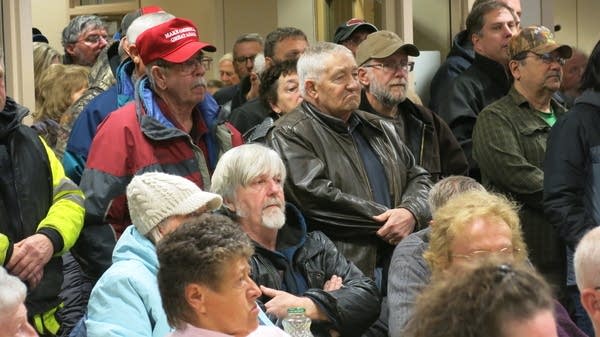Rumors, misinformation lurked as Minnesota county rejected refugees

The Beltrami County Board room was packed with locals on Jan. 7 as the board voted against refugee resettlement.
John Enger | MPR News file
Go Deeper.
Create an account or log in to save stories.
Like this?
Thanks for liking this story! We have added it to a list of your favorite stories.


